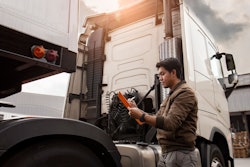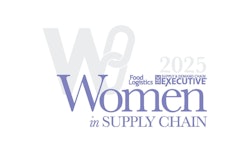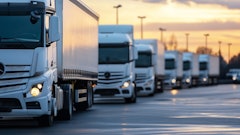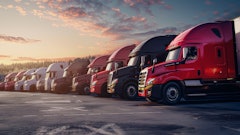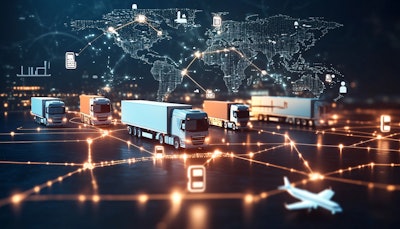
*This content is sponsored by Truck1.eu.
At CES 2025, Volvo Group showcased an impressive array of innovations aimed at revolutionizing logistics and the trucking industry. Already known for its strong presence in the global truck market, including a robust lineup of used Volvo trucks in Europe, the company’s latest technologies further solidify its position as a leader in sustainable and innovative transportation. These developments reflect the company's commitment to sustainability, automation, and efficiency—all critical elements in modern supply chains. Here is a brief overview of the main points relevant to the logistics sector.
1. Electrification of Heavy-Duty Trucks
Volvo introduced the all-new Volvo VNL, a flagship heavy-duty truck for the North American market. It is designed with cutting-edge aerodynamic features and significant powertrain enhancements, resulting in a remarkable 10% boost in fuel and energy efficiency. The redesigned windshield not only enhances visibility for drivers but also contributes to improved road safety—a core value for Volvo.
Globally, Volvo's electric trucks, such as the Volvo VNR Electric in North America and various models operating across Europe, demonstrate the company’s leadership in sustainable transportation. These vehicles are tailored for freight and last-mile delivery, addressing the growing demand for clean and quiet logistics solutions in urban areas.
2. Hydrogen-Powered Trucks
In addition to battery-electric models, Volvo revealed its hydrogen-powered articulated hauler—a prototype that converts hydrogen into electricity using onboard fuel cells. This solution is especially promising for long-haul and heavy construction applications, offering advantages like long range, quick refueling, and zero emissions (only water vapor). Volvo’s multi-path strategy ensures that hydrogen combustion and fuel cells play a pivotal role in the transition to fossil-free transport across European market.
3. Software-Defined Vehicles and Connectivity
Volvo is at the forefront of developing software-defined vehicle platforms in collaboration with Daimler Truck through their new joint venture, Cura. This platform aims to standardize and accelerate the deployment of intelligent, connected vehicles. By integrating advanced software systems, Volvo's trucks gain capabilities such as predictive maintenance, real-time performance monitoring, and over-the-air updates, ensuring seamless operation and reduced downtime.
With 1.7 million connected vehicles globally, Volvo leverages data and AI to optimize fuel efficiency, prevent breakdowns, and support customers in achieving their sustainability goals. These connected solutions are transforming logistics by making fleets smarter and more responsive to dynamic supply chain demands.
4. Autonomous Trucks for Freight Efficiency
One of the standout innovations was the Volvo VNL Autonomous, developed in partnership with Aurora Innovation. This autonomous truck platform integrates the Aurora Driver system, which utilizes advanced sensors, cameras, and AI to outperform human drivers in terms of safety and efficiency. For instance, during a demonstration, the Aurora Driver detected a pedestrian 11 seconds before a human driver would have.
Autonomous trucking is poised to meet the expected fivefold growth in freight volumes by 2050. By improving safety and enabling 24/7 operations, these trucks promise to redefine long-haul logistics.
5. Sustainable and Smart Ecosystems
Volvo highlighted its holistic approach to sustainability, which extends beyond vehicles to include clean energy infrastructure and waste management. Furthermore, Volvo’s established reputation in the used truck market adds another layer of value, offering high-quality pre-owned vehicles that complement these cutting-edge innovations, ensuring a broad range of solutions for logistics operators. For example, Volvo’s electric garbage trucks contribute to quieter and more sustainable urban environments. Additionally, the company’s Battery Energy Storage Solution (BESS) helps balance electric grids at construction sites, showcasing how Volvo integrates sustainability into every stage of the supply chain.
Conclusion
Volvo Group’s CES 2025 keynote demonstrated a clear vision for the future of logistics: a combination of electrification, hydrogen power, connectivity, and autonomy. These innovations not only address the pressing challenges of climate change and urbanization but also enhance efficiency and safety in the supply chain around the world. For logistics professionals, Volvo’s advancements mark a transformative step towards greener, smarter, and more resilient operations.
As the demand for sustainable logistics grows, businesses also need reliable ways to build and upgrade their fleets. Truck1.eu, specializing in commercial vehicles, provides access to a wide range of trucks, including Volvo models, making it easier for logistics operators to integrate advanced tools into their operations and stay competitive in a rapidly evolving market.



